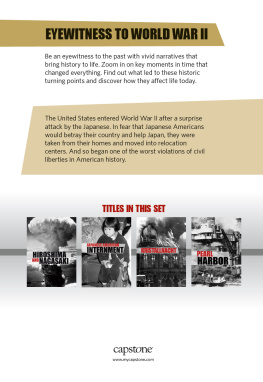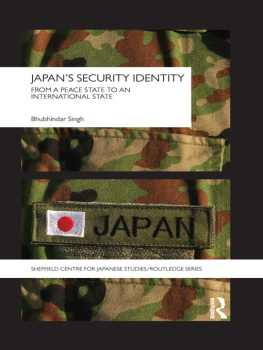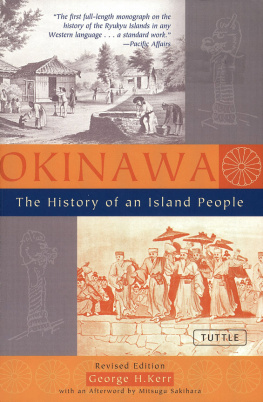Annmaria M. Shimabuku - Alegal: Biopolitics and the Unintelligibility of Okinawan Life
Here you can read online Annmaria M. Shimabuku - Alegal: Biopolitics and the Unintelligibility of Okinawan Life full text of the book (entire story) in english for free. Download pdf and epub, get meaning, cover and reviews about this ebook. year: 2018, publisher: Fordham Univ Press, genre: Politics. Description of the work, (preface) as well as reviews are available. Best literature library LitArk.com created for fans of good reading and offers a wide selection of genres:
Romance novel
Science fiction
Adventure
Detective
Science
History
Home and family
Prose
Art
Politics
Computer
Non-fiction
Religion
Business
Children
Humor
Choose a favorite category and find really read worthwhile books. Enjoy immersion in the world of imagination, feel the emotions of the characters or learn something new for yourself, make an fascinating discovery.

- Book:Alegal: Biopolitics and the Unintelligibility of Okinawan Life
- Author:
- Publisher:Fordham Univ Press
- Genre:
- Year:2018
- Rating:4 / 5
- Favourites:Add to favourites
- Your mark:
Alegal: Biopolitics and the Unintelligibility of Okinawan Life: summary, description and annotation
We offer to read an annotation, description, summary or preface (depends on what the author of the book "Alegal: Biopolitics and the Unintelligibility of Okinawan Life" wrote himself). If you haven't found the necessary information about the book — write in the comments, we will try to find it.
Okinawan life, at the crossroads of American militarism and Japanese capitalism, embodies a fundamental contradiction to the myth of the monoethnic state. Suspended in a state of exception, Okinawans have never been officially classified as colonial subjects of the Japanese empire or the United States, nor have they ever been treated as equal citizens of Japan. As a result, they live amid one of the densest concentrations of U.S. military bases in the world. By bringing Foucauldian biopolitics into conversation with Japanese Marxian theorizations of capitalism, Alegal uncovers Japans determination to protect its middle class from the racialized sexual contact around its mainland bases by displacing them onto Okinawa, while simultaneously upholding Okinawa as a symbol of the infringement of Japanese sovereignty figured in terms of a patriarchal monoethnic state.
This symbolism, however, has provoked ambivalence within Okinawa. In base towns that facilitated encounters between G.I.s and Okinawan women, the racial politics of the United States collided with the postcolonial politics of the Asia Pacific. Through close readings of poetry, reportage, film, and memoir on base-town life since 1945, Shimabuku traces a continuing failure to become Japanese. What she discerns instead is a complex politics surrounding sex work, tipping with volatility along the razors edge between insurgency and collaboration. At stake in sovereign powers attempt to secure Okinawa as a military fortress was the need to contain alegality itselfthat is, a life force irreducible to the legal order. If biopolitics is the states attempt to monopolize life, then Alegal is a story about how borderland actors reclaimed the power of life for themselves.
In addition to scholars of Japan and Okinawa, this book is essential reading for anyone interested in postcolonialism, militarism, mixed-race studies, gender and sexuality, or the production of sovereignty in the modern world.
Alegal is available from the publisher on an open-access basis.
Annmaria M. Shimabuku: author's other books
Who wrote Alegal: Biopolitics and the Unintelligibility of Okinawan Life? Find out the surname, the name of the author of the book and a list of all author's works by series.









